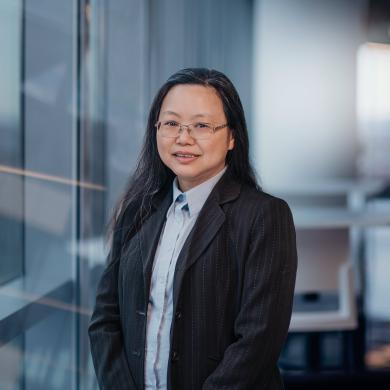Winter 2023 Institute Update
As the Wu Tsai Institute begins its third year since its founding, the Center for Neurocomputation and Machine Intelligence is ramping up activity in several directions.
The primary scientific goal of the Center is to develop computational frameworks that advance our understanding of human cognition. With remarkable advances in machine learning and AI over the last decade, computational modeling is now an essential scientific tool to complement traditional physical, biological, and psychological experiments. To be sure, direct observation and measurement to confirm theory remain the gold standard in science. The paradigm shift is that observation and measurement of computational models will increasingly offer insight into how the brain works to help confirm or refute theory—and to generate new ideas.
The research of many faculty across Yale is advancing the Center's goal. To highlight two projects: David van Dijk (Internal Medicine and Computer Science) and Jessica Cardin (Neuroscience) are collaborating to adapt transformers—the same technology underlying recent media star ChatGPT—to decode brain states from calcium imaging recordings in mice; Abhishek Bhattacharjee (Computer Science) is developing new computer architectures inspired by principles of cognitive neuroscience that promise to be more data and energy efficient, and that can be used as testbeds to probe principles of cognition. Watch for more information and research highlights via the Institute's website and announcements.
The paradigm shift is that observation and measurement of computational models will increasingly offer insight into how the brain works to help confirm or refute theory—and to generate new ideas.
John Lafferty, Director of the Center for Neurocomputation and Machine Intelligence and John C. Malone Professor of Statistics and Data Science
WTI welcomes Ping Luo, who joins the Center as Senior Computational Research Support Analyst and brings extensive experience in high-performance computing (HPC). Ping joined the Institute from the Yale Center for Research Computing (YCRC), and she will continue collaborating with YCRC to support the computing needs of the Center. Her expertise in user-friendly and powerful interfaces to HPC clusters, such as Open OnDemand, will be invaluable as WTI grows its computing infrastructure to support computational research.
Ping is also leading the design and build of a new WTI compute and storage cluster in partnership with YCRC. This new cluster will be named "Misha"' in honor of Misha Mahowald, who did seminal work to build models of the human visual system in silico. Misha embodied some of the central scientific and societal goals of WTI, and it's fitting to honor her short life in this way.



Last November, the Institute welcomed to campus three leading researchers conducting groundbreaking research at the interface of AI/machine learning and neuroscience as part of our new WTI Distinguished Speaker Series. Xaq Pitkow (Baylor College of Medicine and Rice University) spoke about interpreting neural dynamics by modeling beliefs; Guillaume Lajoie (University of Montreal and Mila) showed how deep neural networks could reveal the response properties of biological neurons; and Dan Yamins (Stanford) shared how improvements in unsupervised machine learning lead to better models of the primate visual system.
A major focus of the Center for Neurocomputation and Machine Intelligence over the coming months will be faculty recruiting to attract world-leading research talent to complement our existing strengths in WTI and at Yale, working together to make exciting discoveries about cognition.
